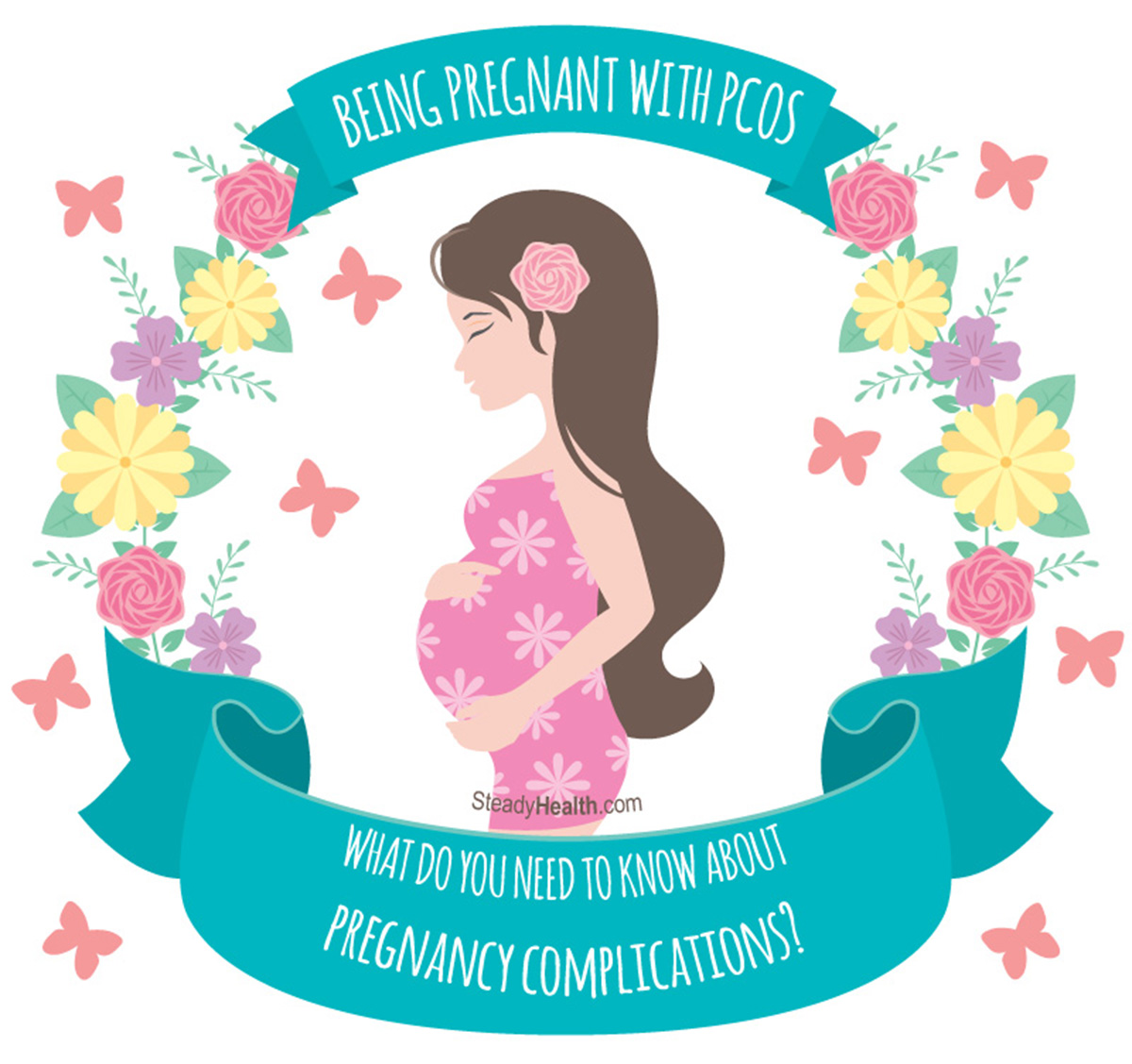Women with Polycystic Ovary Syndrome don't just have a harder time getting pregnant [1]; they also, unfortunately, have a higher risk of pregnancy complications, including:
- Early pregnancy loss (miscarriage)
- Gestational diabetes
- High blood pressure
- Preeclampsia
- Preterm delivery
Whether you are still trying to get pregnant with PCOS and informing yourself about what's ahead, or you're already expecting a baby, you will want to know what you and your healthcare provider can do to increase the odds of a healthy pregnancy with Polycystic Ovary Syndrome.

Why does PCOS lead to an increased risk of pregnancy complications?
Polycystic Ovary Syndrome isn't, as many who don't have it have come to believe in passing, merely a reproductive system disorder. One paper adequately called in a "life course disease", a condition that affects women's entire bodies and lives. PCOS is linked to such varied health consequences as type 2 diabetes, cardiovascular disease, metabolic syndrome, hypertension, obesity, and endometrial cancer. [2]
The Rotterdam criteria for diagnosing PCOS, the most respected diagnostic criteria, require two of the following three characteristics to be present for someone to "qualify" for the PCOS label:
- Infrequent (irregular) menstrual periods or a lack of menstrual periods
- Hyperandrogenism (an excess of androgens)
- Polycystic ovaries [3]
Insulin resistance isn't on that list, but it's a very important aspect of PCOS in many patients. It isn't yet clear whether insulin resistance results directly from PCOS, or whether it is related to the obesity so many women with PCOS struggle with [2].
Let's take a quick look at the pregnancy complications women with Polycystic Ovary Syndrome are more likely to suffer from, and examine why.
-
Miscarriage. While there's research to suggest that women with PCOS have significantly higher miscarriage rates than those without PCOS, you'll be interested to hear that there is also research that questions the idea that PCOS itself is responsible. Pregnancy loss in women with PCOS may be associated with hormonal and physiological factors directly related to the syndrome, but it may also be linked to the ovulation-inducing medications many women with PCOS take to get pregnant. Insulin resistance, present in many women with PCOS, also increases the risk of miscarriage.
-
Pregnancy-induced hypertension and preeclampsia. These pregnancy complications are believed to be related to obesity rates, higher rates of twins and multiples due to ovulation-inducing medications and, once again, insulin resistance.
-
Gestational diabetes. PCOS patients have a higher risk of pregnancy diabetes due to insulin resistance.
-
The increased risk of preterm delivery, a high birth weight in babies, and the need for the baby to be cared for in a neonatal intensive care unit have been linked to the other complications mentioned above. Women with PCOS are more likely to need a cesarean section for the same reasons. [4, 5, 6]
What prenatal care will you need if you have PCOS?
The health of pregnant women with PCOS and their babies will be followed carefully during prenatal appointments — just like it is for every other pregnant woman. Blood glucose and hypertension tests will be carried out with the idea that you're at a higher risk for those conditions in mind, but unless you encounter any pregnancy complications or have pre-existing conditions (related to your Polycystic Ovary Syndrome or not), your prenatal care will not be more invasive than it is for any other expectant mother.
You may, however, be prescribed Metformin. You may know about Metformin (Glucphage) for losing weight with PCOS, but the medication, which makes the way in which the body uses insulin more efficient, has also been shown to reduce pregnancy complications associated with Polycystic Ovary Syndrome significantly. [7]
If you have type 2 diabetes, you'll likely be instructed to monitor your blood glucose levels more frequently, to keep on using your diabetes medication, to attend prenatal care appointments more frequently, and to see a dietitian help you maintain an optimal pregnancy diet. Since pregnancy outcomes are better in those women with type 2 diabetes who seek prenatal care early on in their pregnancies, we'd advise you to get in touch with your OBGYN as soon as you find out you are expecting. [8]
Pregnant with Polycystic Ovary Syndrome: Your prenatal PCOS diet plan
There is evidence to suggest that a diabetes-friendly low glycemic index diet is the best diet plan for PCOS patients [9]. A low-GI diet becomes even more important during pregnancy. You will want to include plenty of fresh fruits and vegetables in your diet, as well as lean meat, poultry, fish, beans and legumes, and whole grains. Minimize your saturated fat intake, and make breakfast your largest meal to reduce your insulin and androgen levels [10].
Note that you shouldn't worry about losing weight with PCOS during your pregnancy, even if you were obese when you conceived — pregnant women who are obese are expected to gain between 15 and 25 pounds during their pregnancies. This is less than the 25 to 35 pounds women who started their pregnancies with a "healthy" weight are expected to gain, but it's still weight gain. [11]
It's also important to continue exercising during your pregnancy, but please discuss the details with your healthcare provider first. Low-impact activities that do not pose a risk of falling are best. Swimming and walking are both excellent options.
A final word
Because Polycystic Ovary Syndrome increases the risk of pregnancy complications, any expectant mother with PCOS may feel scared and worried during a time that was meant to be joyful and exciting. Your OBGYN will be there with you every step of the way, though, and with the right prenatal care, a healthy pregnancy is very much possible.
- Photo courtesy of SteadyHealth.com


Your thoughts on this